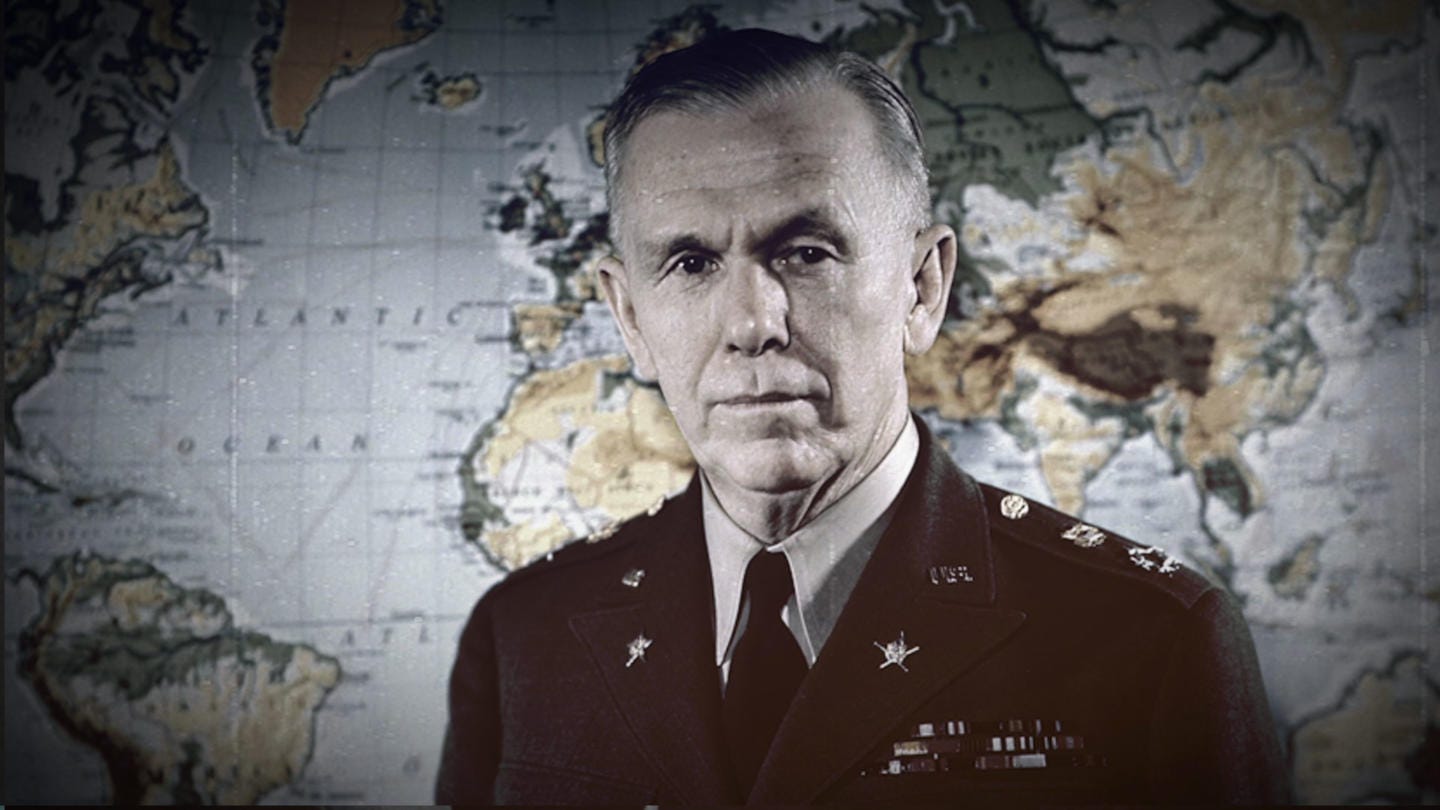Marshall’s Miss and The Character to Move On
Lessons from one of the most consequential leaders of the 20th century.

George C. Marshall was one of the most consequential leaders of the 20th century. A World War I Veteran, he became Army chief of staff before and during World War II. He was essentially the architect of the Allied invasion of Europe. Winston Churchill called him “the organizer of victory.” He was also the first five-star general in American history and organized the largest ever expansion of the U.S. Military. Marshall also served as ambassador to China, Secretary of State and Secretary of Defense. His plan to rebuild Europe, known as The Marshall Plan, helped lift a battered and decimated people to economic and social stability by the 1950’s. It’s hard to read the history of the 20th Century and not see George C. Marshall.
But I am intrigued by a moment in which Marshall was passed over for an opportunity for which he was both deserving, a post he desired. In the run up to America’s engagement in World War and throughout the war, Marshall served as the Army Chief of Staff, a significant post that put him in the inner circle with President Roosevelt. Not long after America’s declaration of war on Germany and Japan, the United States pursued a cross-channel invasion of Europe to strike at the heart of Germany’s defenses. This was known as Operation Overlord, whose most popular battle is known today as D-Day, the storming of the beaches of Normandy. This entire operation, which required significant diplomacy with England and Russia, Winston Churchill and Josef Stalin, was conceived, coordinated, and organized by General Marshall. But who would run the effort?
Most in Washington and London assumed President Roosevelt would tap Marshall. Having conceived this plan, it would make the most sense for him move to London to execute it. Before making his decision, Roosevelt had Marshall in the Oval Office and discussed this appointment with him. Marshall could have spoken up and suggested himself. The President and everyone else expected him to do this, but he demurred. A few days later, Roosevelt selected Marshall’s protégé General Dwight D. Eisenhower, citing the need to keep Marshall in DC to ensure the smooth running of the war. This was, obviously a blow to Marshall and put Eisenhower on a path to the Presidency. But Marshall didn’t ever mention it—in his memoirs, in letters—and enthusiastically endorsed Ike for the role and made sure he thrived.
I’m struck by this. It’s not as if Marshall was not ambitious. This is a man who, in his younger days, forced his way into President William McKinley’s office at the White House and requested a commissioning as a Lieutenant, which he received. But Marshal’s willingness to accept President Roosevelt’s choice spoke volumes about his character. It was said of George Marshall by Orson Welles that he was “the greatest human being who was also a great man.” Those around him said that he was known by his character and self-sacrifice.
It’s difficult for anyone to be passed over for a job for which you have prepared, a role you desire. Most don’t take it well. Most let it fill their lives with bitterness. But Marshall demonstrated the character to put this aside for the good of his country.
It just so happens that I’m reading not only about Marshall, in the great new biography George Marshall, Defender of the Republic by David Roll, but I’m also reading in my daily devotional time through the Old Testament and I came upon King David and a similar scenario. David’s dream was to build a temple for the Lord but the Lord, through the prophet Nathan, informed him that he would have Solomon, David’s son and heir, build the temple instead. Of David, God promised, would come not only a temple, but an everlasting kingdom. It was a short-term disappointment but a long-term promise. How did David respond? He accepted God’s plan and thrust himself into preparing Israel and Solomon for the building of the temple, negotiating with other countries for supplies, raising money for the temple and leading the people spiritually through this transition.
This is such a lesson for leadership. Sometimes God taps us to step into a leadership. At other times, we are passed over and others are tapped to lead where we might wish we were. What do we do? Grumble and complain? Undermine those in charge? Or do we accept and acknowledge what God is doing and support the one God has allowed to take the reins? Good questions for all of us and good examples from both George Marshall and King David.
This Week on The Way Home Podcast

Paula Faris was the weekend host of Good Morning America, an anchor on The View and one of America’s top journalists when a series of trials forced her to reconsider her calling and walk away from her dream job. Paula has also hosted World News Now and America This Morning.
Paula joins me on The Way Home podcast to talk about her career in broadcasting, what it’s like to live out the Christian faith in a secular news environment, and her brand new memoir: Called Out: Why I Traded Two Dream Jobs for a Life of True Calling.
Interesting Links
This is a sobering read in Politico about the mental health challenges during the pandemic.
My friend and former colleague Jason Thacker has a fantastic new essay in Christianity Today about artificial intelligence and the ways this technology is getting us through a pandemic.
K.V. Paxton has an important word for us: Maybe we should give our pastors grace during this pandemic. I know I’ve had conversations with many pastors who are telling me this is the hardest time, in their entire ministry life, to lead.
Lastly, I thought this piece was fun and helpful: the complicated relationship of President Obama and Vice-President Biden. I don’t agree with much of Biden’s policies, but this look I think gives a good understanding of his leadership style.
Personal Projects
This is launch week for A Way With Words. There is still time to pre-order and join me on a special launch team event this Tuesday night.
I have turned in the manuscript for The Characters of Easter. I’ve also signed a contract with Lifeway to do a Bible study on spiritual gifts. I won’t start working on that until 2021.
I’ve had a few articles published since our last newsletter:
8 Ways To Use Social Media for Good at Lifeway Voices
Duet for A Fallen World: On the Differences Between Grace and Mercy at In Touch
6 Dangerous Social Media Habits to Avoid at Facts and Trends
What I’m Reading
Just finished Gentle and Lowly by Dane Ortlund. You need to read this book.
I’m still listening to George Marshall, Defender of the Republic by David Roll.
I just started On the Road With St. Augustine by James K. A. Smith.
Stay in Touch
If you got this from a friend, make sure to subscribe now so you don’t miss any future content.
If you have any feedback on One Little Word, I’d love to hear from you. Connect with me on Twitter here.



